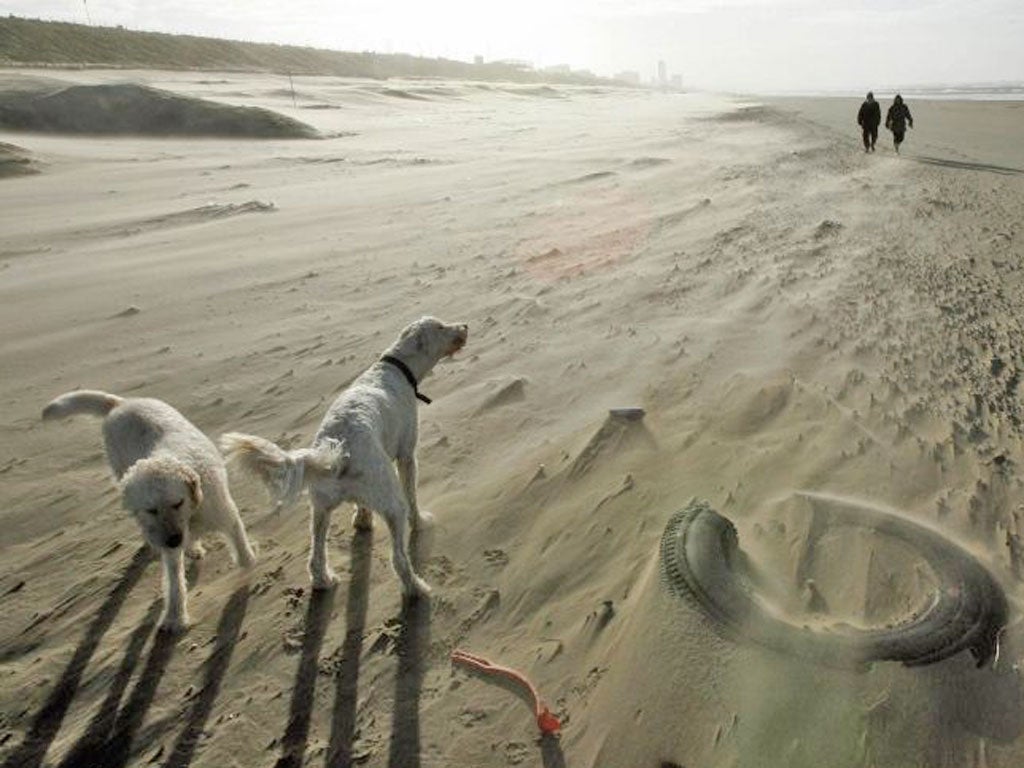Kate Humble: The dogs will have their day – until the summer
The View From Here

Your support helps us to tell the story
From reproductive rights to climate change to Big Tech, The Independent is on the ground when the story is developing. Whether it's investigating the financials of Elon Musk's pro-Trump PAC or producing our latest documentary, 'The A Word', which shines a light on the American women fighting for reproductive rights, we know how important it is to parse out the facts from the messaging.
At such a critical moment in US history, we need reporters on the ground. Your donation allows us to keep sending journalists to speak to both sides of the story.
The Independent is trusted by Americans across the entire political spectrum. And unlike many other quality news outlets, we choose not to lock Americans out of our reporting and analysis with paywalls. We believe quality journalism should be available to everyone, paid for by those who can afford it.
Your support makes all the difference."Dogs on beaches! Shouldn't be allowed! I'd ban them!" postulated the bloke on the radio. "I'd ban people on beaches," I muttered. OK, no one wants someone else's (or even their own) wet, sand-covered Labrador blundering into their picnic and nicking the pork pie, or their child to build a sandcastle that is cemented together with dog poo. But at least if a dog does poo on the beach below the high tide mark, it will be swept away and disintegrate harmlessly in the sea.
You can't say the same for the tons of plastic rubbish left behind by the people who crowd our beaches in the summer months to spend the day lathered in an uncomfortable mix of sun cream and sand, only to return home tired and cross, pink with patchy sunburn, children wailing because they've fallen face-down in a rock pool or been nipped by a crab.
The bloke on the radio was clearly unaware that dogs are banned from many of Britain's beaches throughout the summer. Those of us with dogs have autumn, winter and early spring to make the most of this country's coastline, and I'll let you into a secret – it's no hardship.
When I moved to Wales, I discovered the Gower peninsula. The Gower is a far cry from kiss-me-quick, sticks of rock and arcade machines. It is cliffs and dunes, wheeling choughs and sheep-munched moorland, rocky headlands and long, long stretches of sand, most of which are a little bit difficult to get to. Its few towns and villages are tucked away, a bit inland, so the Gower's charms don't lend themselves to the sort of beach trip that involves lugging cool boxes, deck chairs, and windbreaks. But they do lend themselves to big, majestic walks, fortified by sausage sandwiches in the dunes.
I have no idea whether dogs are banned from the Gower in the summer because I have only ever been in the autumn and winter. Along with my two mongrels, Badger and Bella, I've braved horizontal hail and winds strong enough to blow me off balance. We've walked on grey, glowering days, when the sky is full of dark, scudding clouds and the surf pounds the beach with merciless repetition. We've climbed the dunes to get to the beach, leaving our footprints in snow.
Rarely do we see another soul, but on one memorable December day we walked along Oxwich Bay's miles and miles of hard-packed sand under a cloudless sky, the sea as blue and placid as a Caribbean lagoon. Way ahead three indistinct forms came towards us. We heard a voice cry out: "Not too close to the sea, dad!" A man zoomed past, sand flying from the wheels of his electric wheelchair, as he twirled and swirled in a mad dance across the sand. We joined his laughing sons watching wheelchair and mongrels racing joyfully along the surfline, celebrating the unadulterated freedom – for both man and dog – of a beach on a winter's day.
Join our commenting forum
Join thought-provoking conversations, follow other Independent readers and see their replies
Comments